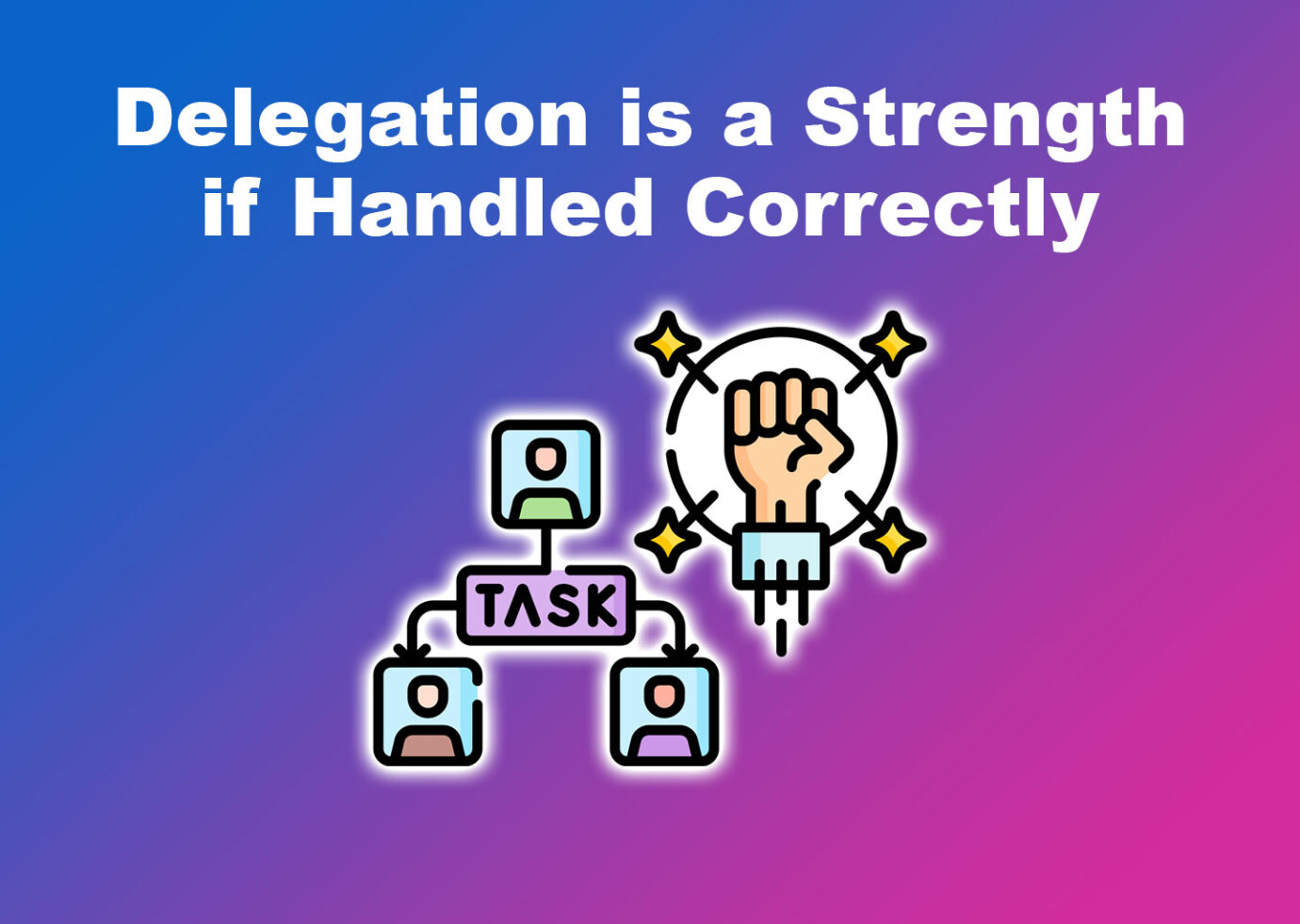Are you stuck in a loop of delegating work to others and not getting the expected results? You might be doing it wrong. To do it effectively, you first have to understand why delegating is important and weigh the pros and cons of delegating leadership.

This article will identify the disadvantages of delegation and provide some details on how to make it effective.
Before finding out the disadvantages of delegation, you might want to discover why delegation is important in businesses first.
What Is the Definition of Delegation in Business?
In business, delegation entails assigning tasks or projects to team members. Usually, managers and leaders assign tasks. They are also expected to bear the responsibility for the quality of the output. Other team members can also assign or delegate tasks to other team members.
If done right, delegating tasks can help increase business productivity. But it can also destroy your desired output if the assignees aren’t well-equipped. In this case, you might have much more on your plate instead of having some free time.
Learn more about What Delegation Is.
Why Is Delegating Important?
Delegating is important as it maximizes business productivity while honing your management skills, thus allowing you to take on larger teams in the future. It also helps boost employee morale, as delegating could mean the management trusts their capabilities.
Ultimately, delegating effectively can help you build a dynamic team.
You should consider delegating to your team members to be more efficient while focusing on more pressing tasks. As a leader, building rapport through effective delegation can help improve coordination and confidence among team members.
Learn about What Professionals Say About the Importance of Delegation.
As a leader, knowing the five levels of delegation is crucial. Get to know them in this article.
What Are the Disadvantages of Delegation?
Despite being important in business, delegation has disadvantages. If done incorrectly, it could pose serious threats to businesses.
Here are some disadvantages of delegation:
1. Poor Quality of Work
If you delegate the wrong tasks to the wrong person, the quality of work will suffer. This happens when a team member isn’t fully briefed about the task or has inadequate training. Sometimes, certain expectations of the output weren’t fully aligned, resulting in poor performance.

Poor quality of work is the most significant of all the disadvantages of delegation. The reason is that it affects both internal and external operations. If the work quality does not meet a client’s expectations, your business will suffer financial loss.
Just like any other process, ample preparation is necessary to achieve great results. To ensure good results, prepare your subordinates first or delegate the task to an expert.
2. Employee Burden
If you assign employees multiple tasks with tight deadlines, they might feel stressed. This can result in overworking and failure to obtain the desired work outcome. For this reason, it’s best to spread out the tasks to other employees rather than just to one person.
If you happen to observe yourself assigning too many tasks to a single individual, consider looking for another officiant person to take on the job. Employees lose motivation and interest when they have too much to do but are under-compensated.
3. Micromanagement Issues
Some managers and supervisors tend to keep a keen eye on their employees’ work to achieve their desired results. However, this micromanagement approach may pressure the assignees with idealized perfectionism.
Once a project or task is delegated to someone else, managers will have less control over it. To avoid micromanagement, a leader should let the assigned individual do the task their way as long as they can get the job done efficiently.
Another tip to avoid micromanagement is to follow up with the assignee only when the deadline is near. Unnecessary continuous follow-up can pressure people to rush results, so they have something to report, which can negatively affect the output.
4. Potential Conflict
If things keep going wrong, you will feel frustrated as a leader. Once this happens, your team members will also feel the same. This frustration can potentially develop into a conflict.
You will also have to repeat the instructions repeatedly to help the assignee understand what went wrong. To avoid this, consider doing a task yourself, then show them how you did it. This way, you and your assignees can avoid miscommunication.

Teams are prone to conflict if there is constant miscommunication and a lack of proper judgment. Conflict is a heavy disadvantage of delegation, as it can make a manager’s relationship with the assignee ineffective.
As a leader, you have to help the assignee understand the job that needs to be done.
5. Budget and Business Risk
Delegating tasks is risky in terms of budget and business operations. You will need to invest in training your employees to perform specific tasks.
Also, if you’re a business owner, delegating might be risky for your business as you’re the expert in efficiently operating it. Assigning it to someone else might hinder business stability.
The only way to mitigate risks is to have contingency plans. You could consider outsourcing if you don’t have enough budget for training internal employees. When done correctly, outsourcing can result in significant cost savings and speed up your operations.
Discover some examples of delegation here.
Is Delegation a Strength or a Weakness?
Delegation is a strength if it is handled correctly. It is a crucial management skill that helps managers build employee confidence and trust. Others view delegation as a weakness, but only if it’s done without proper planning. Proper delegation can be practiced to turn it into your biggest strength.

When delegating tasks, the principle of “right” should be applied. First, ask yourself if it is the right person, the right task, the right time, and the right supervision.
Delegation becomes your strength if you can apply it to projects and business operations efficiently. It’s a skill that can be developed over time, so it’s alright to be sloppy sometimes.
Delegation only becomes a weakness if you assign tasks to others without overseeing them from start to finish. You are responsible for the outcome of the job. Delegating tasks just because you want free time for yourself will have negative results.
Learn more by reading How to Delegate Tasks Properly.
How to Make Delegation Effective
Below are some of the things that you can do to make the delegation effective:
- Analyze Positive Aspects of Your Team.
Observe how your team members handle their jobs. This way, you’ll be able to identify if they can take on the tasks you plan to delegate efficiently. - Identify Tasks to Delegate.
You can’t just assign anything that comes to mind. If there’s a task you do every day that can be done by someone else in your team, assign it to someone who you think can handle it properly. - Communicate Your Expectations.
Explain your expectations to your delegates so they know what objective they need to reach. If possible, provide them with samples. - Set a Deadline.
Without a deadline, the delegated task might be pushed back. Set a specific deadline with room for extension, especially if the assignee has other tasks to prioritize. - Choose Specific Communication Channels.
One or two communication channels will help you centralize coordination. The first one should be the primary channel, while the other should be a backup in case the former’s service goes down. - Learn to Let Go of the Delegated Task.
Once you’ve learned to let go of the task, you should allow room for failure. This way, you’ll build trust and confidence in your team while giving them a second chance if something goes wrong. - Provide Feedback.
Give and receive comments on the output. Build authority while also allowing some room for self-improvement. - Consider Investing in Skills and Training.
To hone your team’s skills in completing specific tasks, you should have them trained. This will increase efficiency and productivity if successful. - Recognize Team Contribution.
Without proper credit, your team’s morale may drop. Learn to recognize their contributions whenever needed.
Keep honing your skills as a leader to ensure that the delegation of tasks is successful. The more you do it, the more you’ll have experience. This will also help turn you into a leader who can handle small or large teams.
CNN also provides details on How to Step Back and Delegate Properly.
How Does Delegation Motivate Employees?
Delegation motivates employees by giving them a sense of purpose in the company. It also helps them achieve autonomy as they handle tasks on their own. Delegation also allows them to take on challenges and new tasks, boosting employee morale.

Although one disadvantage of delegation is employee burnout, when done right, it also helps increase the employee retention rate. Both the pros and cons of delegating leadership directly impact employees and may affect their overall performance. It’s best to do it right to avoid mishaps in the future.
Delegation Has Advantages & Disadvantages
If you still find delegating disadvantageous, you might need to ask yourself if you’re doing it right. If your answer is no, then go back to why delegation is important and how it can contribute to business growth and stability. This might motivate you to do better.
Delegation, if done incorrectly, might pose high risks to your business. Consider improving both your delegation skills and your team’s task-completion skills. This way, you’ll have a harmonious and strong team that can face challenges in the long run.